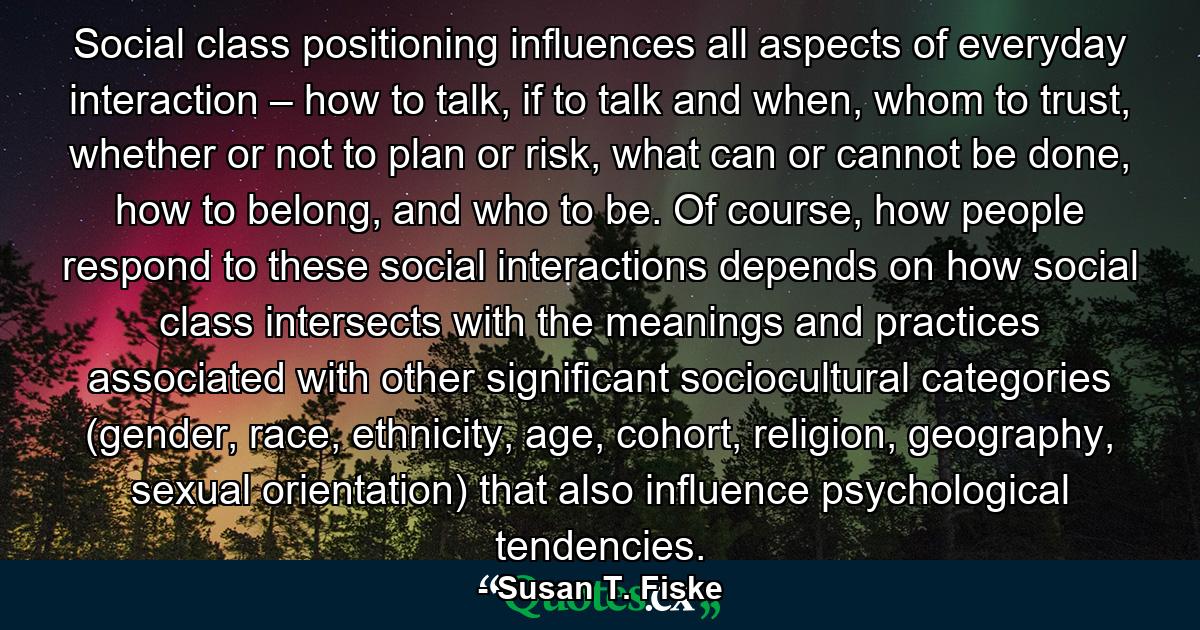Social class positioning influences all aspects of everyday interaction – how to talk, if to talk and when, whom to trust, whether or not to plan or risk, what can or cannot be done, how to belong, and who to be. Of course, how people respond to these social interactions depends on how social class intersects with the meanings and practices associated with other significant sociocultural categories (gender, race, ethnicity, age, cohort, religion, geography, sexual orientation) that also influence psychological tendencies.
